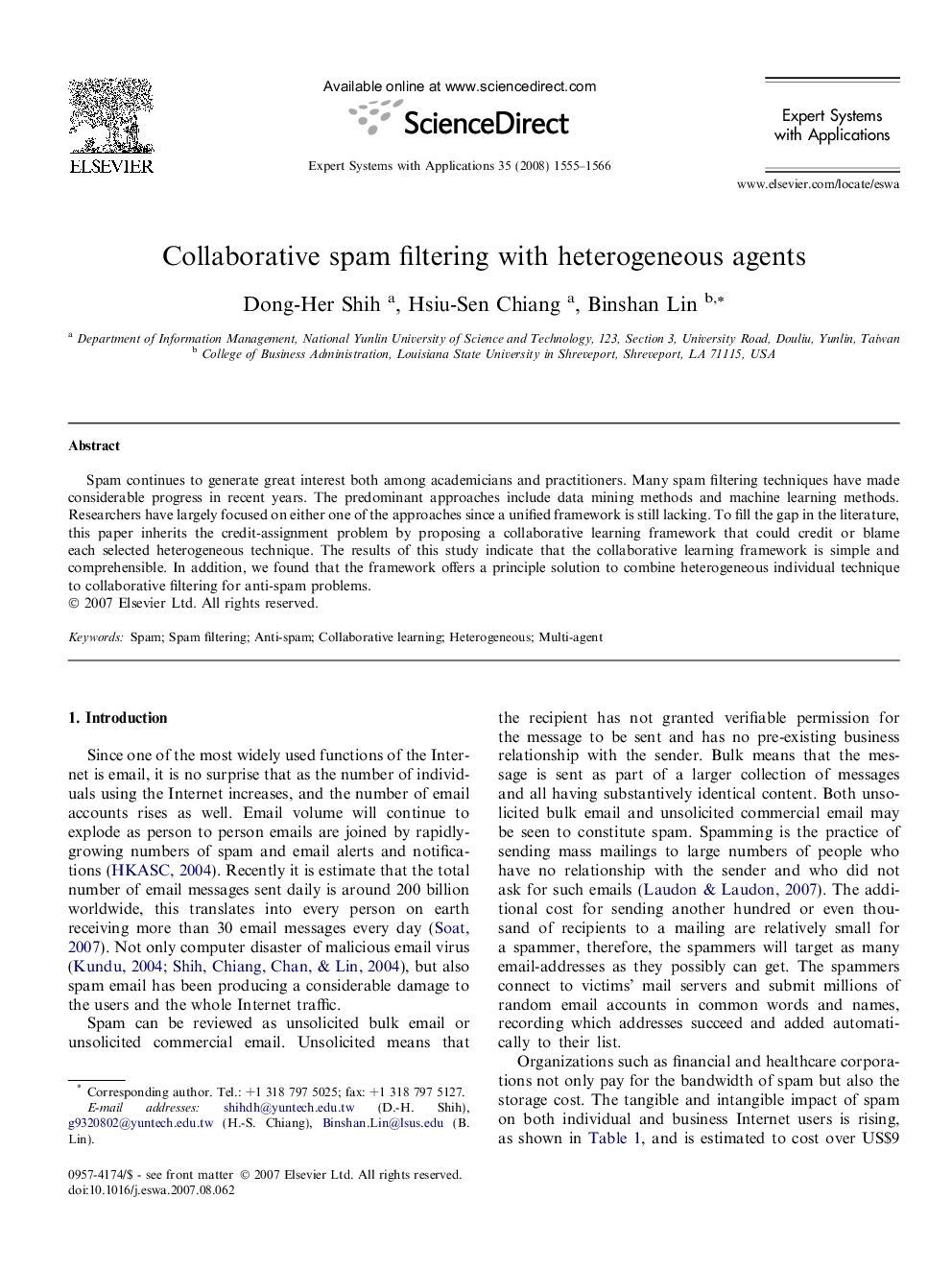| Article ID | Journal | Published Year | Pages | File Type |
|---|---|---|---|---|
| 388854 | Expert Systems with Applications | 2008 | 12 Pages |
Spam continues to generate great interest both among academicians and practitioners. Many spam filtering techniques have made considerable progress in recent years. The predominant approaches include data mining methods and machine learning methods. Researchers have largely focused on either one of the approaches since a unified framework is still lacking. To fill the gap in the literature, this paper inherits the credit-assignment problem by proposing a collaborative learning framework that could credit or blame each selected heterogeneous technique. The results of this study indicate that the collaborative learning framework is simple and comprehensible. In addition, we found that the framework offers a principle solution to combine heterogeneous individual technique to collaborative filtering for anti-spam problems.
